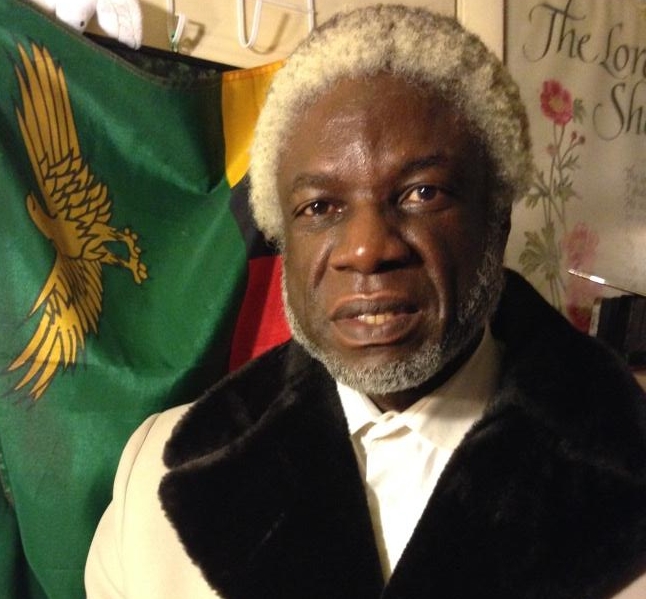By Henry Kyambalesa

Essentially, this article is designed to provide a commentary relating to the following: (a) the dire consequences of the decision by Russia’s president, Vladimir Putin, to willfully invade, as well as annex parts of, Ukraine—a neighboring sovereign nation—in violation of the Principles of the United Nations (UN); (b) the UN’s role in resolving disputes and conflicts between and/or among member-countries; and (c) the primary purpose of the North Atlantic Treaty Organization (NATO).
Dire Effects of the Invasion:
Russia’s unprovoked invasion and annexation of parts of Ukraine has caused catastrophic socioeconomic consequences worldwide, among the most obvious of which are the following:
(a) Trauma, the refugee crisis, the human carnage, the destruction of economic infrastructure, and the disruption of socioeconomic activities in Ukraine and beyond;
(b) The disruption of oil supplies from Russia to the rest of the world, and the resulting shortages and high prices of gasoline around the world; and
(c) The disruption of supplies of grin from Ukraine to the rest of world, and its contribution to famine and high prices of food worldwide
Role of the United Nations
The “Principles of the United Nations” stipulated in Article 2 of the multilateral institution’s Charter essentially prohibit member-countries from engaging in activities and/or covert operations against the territorial integrity or political independence of other member-countries.
Specifically, the following Principles stipulated in Article 2 of the UN prohibit member-countries from threatening or, except in self-defense, using force or war against other member-countries in Clauses 3 and 4:
1. The UN is based on the principle of the sovereign equality of all its Members.
2. All Members, in order to ensure to all of them the rights and benefits resulting from membership, shall fulfill in good faith the obligations assumed by them in accordance with the present Charter.
3. All Members shall settle their international disputes by peaceful means in such a manner that international peace and security, and justice, are not endangered.
4. All Members shall refrain in their international relations from the threat or use of force against the territorial integrity or political independence of any state, or in any other manner inconsistent with the Purposes of the UN.
5. All Members shall render assistance to the UN in any action it takes in accordance with the present Charter, and shall refrain from giving assistance to any member-country against which the UN is taking preventive or enforcement action.
6. The United Nations shall ensure that states which are not Members of the United Nations act in accordance with these Principles so far as may be necessary for the maintenance of international peace and security.
7. Nothing contained in the present Charter shall authorize the UN to intervene in matters which are essentially within the domestic jurisdiction of any state or shall require the Members to submit such matters for settlement under the present Charter; but this Principle shall not prejudice the application of enforcement measures under Chapter Vll.
Chapter VII of the UN Charter sets out the institution’s Security Council’s powers to maintain peace. It provides for the Council to “determine the existence of any threat to the peace, breach of the peace, or act of aggression” and to take military and nonmilitary action to “restore international peace and security.”
Chapter VII also gives the Military Staff Committee responsibility for strategic coordination of forces placed at the disposal of the Security Council. It comprises the chiefs-of-staff of the Council’s five permanent member-countries—namely, China, France, Russia, the United Kingdom, and the United States.
If Vladimir Putin had any genuine issues or problems with Ukraine and/or its leaders, he should have shown some respect for the UN by presenting his or his country’s grievances to the multilateral institution to have the issues or problems resolved.
Unfortunately, he could not suppress his primitive, crude, savage, and evil impulses, and, intoxicated by unfettered political power and backed by docile military officers, he could not guard himself against committing heinous atrocities against Ukrainians in particular, and against humanity in general.
The Purpose of NATO
NATO was established on August 24, 1949. Its purpose is to guarantee the freedom and security of its members through political and military means, including the promotion of democratic values and ensuring that members consult and cooperate on defense and security-related issues to solve problems, build trust and, in the long run, prevent conflict.
According to the Organization’s collective defense clause stipulated in Article 5, an armed attack against one member-country would be considered an attack against them all and, in exercise of the right of individual or collective self-defense recognized by Article 51 of the Charter of the UN, would individually and in concert with other member-countries take such action as it would be deemed necessary, including the use of armed force, to restore and maintain the security of an affected member-country.
The following are NATO’s current member-countries: Albania, Belgium, Bulgaria, Canada, Croatia, Czech Republic, Denmark, Estonia, France, Germany, Greece, Hungary, Iceland, Italy, Latvia, Lithuania, Luxembourg, Montenegro, the Netherlands, North Macedonia, Norway, Poland, Portugal, Romania, Slovakia, Slovenia, Spain, Turkey, United Kingdom, and the United States.
In conclusion, there is a need for each and every country’s executive president or prime minister to possess leadership qualities that all national political leaders worldwide need to have in their arsenal of aptitudes.
Such qualities include emotional stability, humility, patriotism, selflessness, impartiality, patience, compassion, tolerance, diligence, respect for both national and international laws, ability to think of one’s leadership position as a temporary mandate to serve the people, ability to conceive of oneself as just another mortal with limited knowledge and aptitudes, ability to make compromises with people who have dissenting views, and an inclination to work hand in hand and hand in glove with other countries’ leaders in addressing pressing global issues and challenges.
